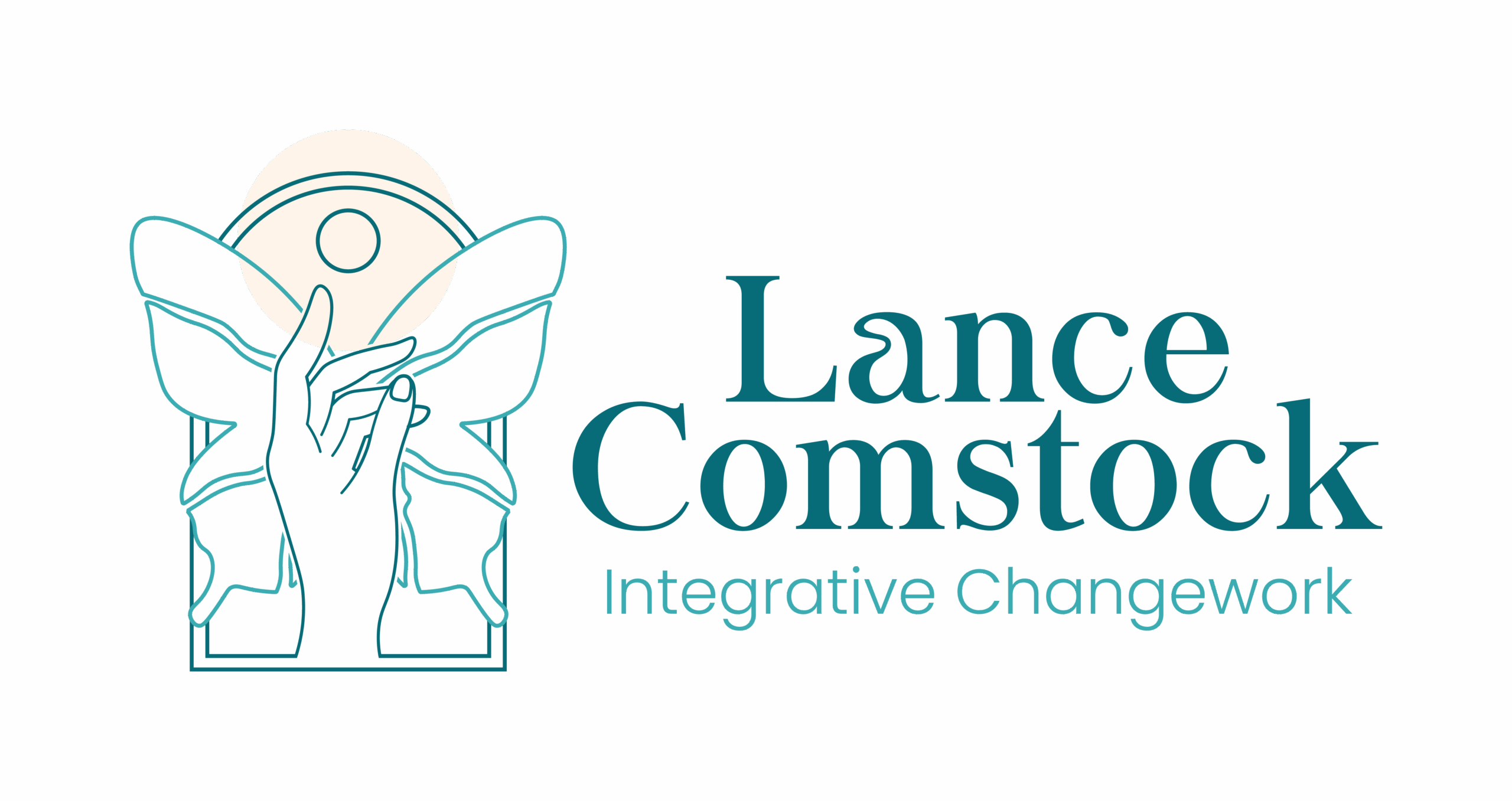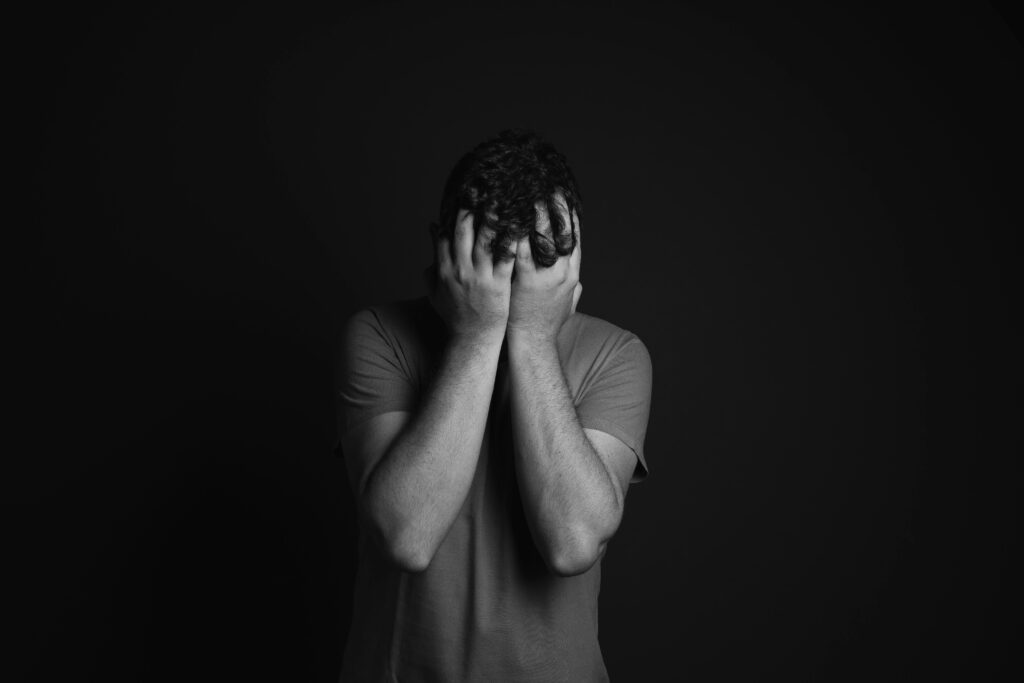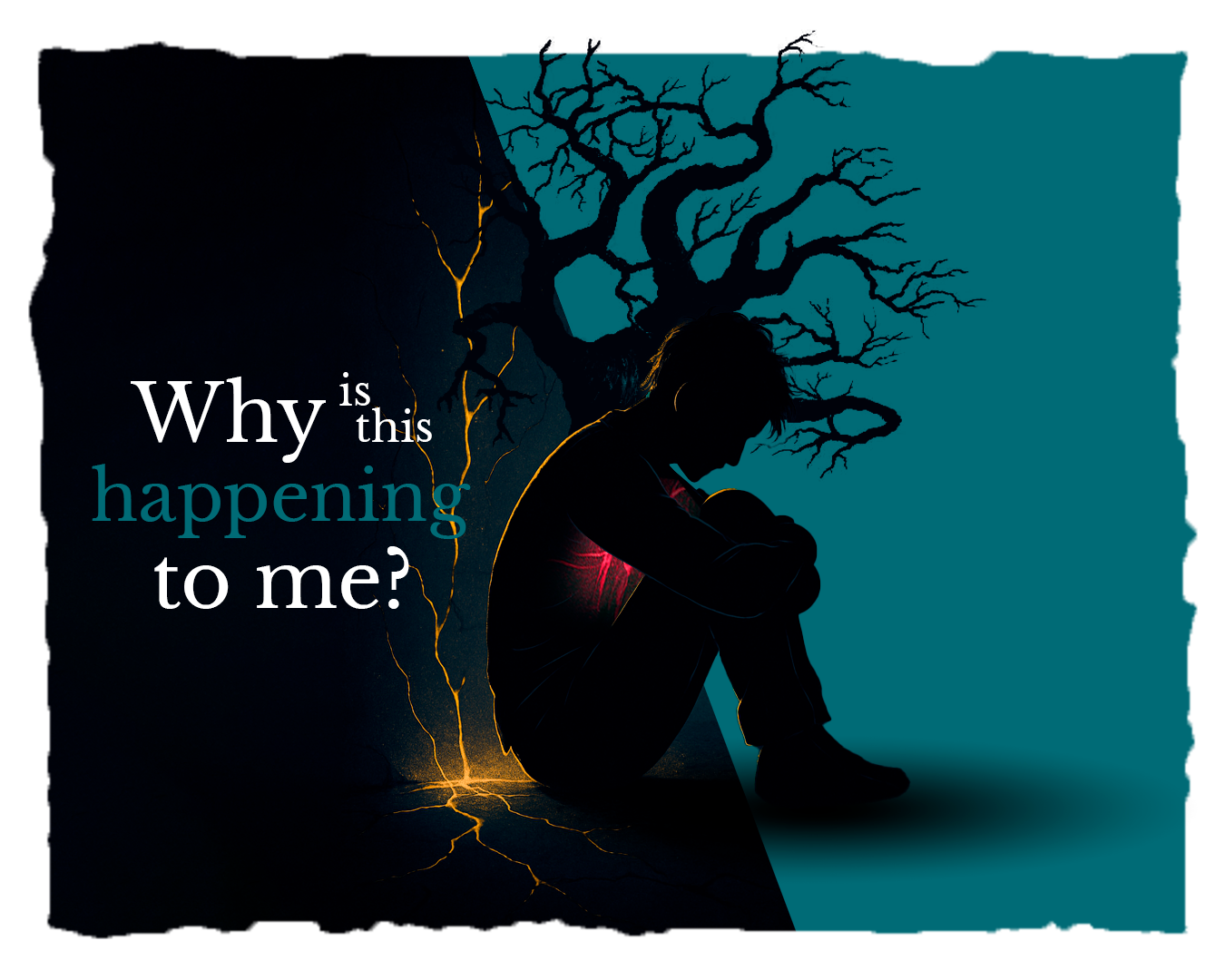Men don’t worry, do we? We’re meant to be strong, to grind, to absorb whatever life throws our
way and to keep on moving forward without breaking stride.
So what do we do when that expectation becomes too much? When the weight of other
people’s expectations—and our own—creates a constant undercurrent of anxiety that we can’t
seem to shake?
If you’re reading this and recognizing yourself, understand that you’re not alone. And more
importantly, there’s nothing wrong with you for feeling this way.
What Anxiety Looks Like in Men
Anxiety doesn’t always look like panic attacks or overt worry. In many men, it disguises itself in
more socially acceptable forms.
Maybe it’s the constant need to be doing something, to always be productive. The inability to
relax, even when you’re “taking a break.” The irritability that comes out of nowhere, or the
physical tension that lives in your shoulders and jaw.
Perhaps it’s the rumination that wakes you at 2 AM, replaying every worst-case scenario of what
could go wrong. Or the gnawing feeling that you’re not doing enough, achieving enough, or
being enough.
Each of these are a face of anxiety—and they’re overwhelmingly common among men who’ve
been socialized to think vulnerability is weakness.
The Special Burden Men Carry
Most men grow up with similar childhood messages on how to handle stress and emotion:
“Big boys don’t cry.”
“Man up.”
“Don’t be so sensitive.”
“You have to be the provider, the protector.”
These messages create what I call “emotional armor”
—a shield that keeps feelings at bay. But
armor that is never removed becomes a prison.
When anxiety appears, this conditioning kicks in. Instead of observing the feeling, we usually:
– Push through and deny it- Channel it into anger or frustration
– Numb it with work, alcohol, or other distractions
– Criticize ourselves for having felt it at all
The Hidden Costs of Suppression
What happens when we consistently push anxiety down instead of addressing it?
The human body takes the weight. The tightness in your chest, the headaches, the stomach
issues, the insomnia—these aren’t random. They’re your body’s way of expressing what your
mind won’t let you feel.
Relationships also pay the price. When we’re occupied with holding internal pressure, we’re less
patient, less present, less capable of showing up for authentic connection. We can become
withdrawn, snappish, or emotionally unavailable without even realizing it.
And at work? The same anxiety we’re trying to hide often sabotages our work performance. We
might overthink decisions, avoid risks, or burn out from trying to maintain an unsustainable
pace.
Breaking the Cycle: A Different Approach
The good news? There’s another way ahead—one that doesn’t require you to lose your
strength, only redefine it.
Real strength doesn’t mean never being nervous. It means being courageous enough to feel
whatever you’re feeling and still choose how to behave.
This is where alternative healing practices can be life-altering. Where traditional talk therapy can
be too slow or intellectual for men who require tangible solutions, these practices involve both
mind and body to create real transformation.
Mind-Body Healing: Tools That Work
Breathwork and Meditation
You don’t need to sit cross-legged and chant for hours. Simple breathing exercises can
transform your nervous system from fight-or-flight to relaxed in minutes. Five minutes of
conscious breathing will do it.
Rapid Transformational Therapy (RTT)This approach utilizes the power of hypnosis and cognitive techniques to access the root of anxiety patterns. Instead of managing symptoms for years, RTT allows you to understand where these patterns started and transform them at the source.
Energy Healing
Before you dismiss this as “voodoo” consider that everything in your body runs on electrical
impulses. Energy healing works with these natural systems to create balance and reduce the
physical symptoms of anxiety.
Reflection Questions for Your Journey
Sit in silence and ask yourself honestly:
What messages did I receive when I was growing up about what it means to be a man?
When did I first learn that my feelings weren’t safe to express?
What would my life be like without this underlying thread of fear?
What am I afraid will happen if I let my guard down?
How is my fear protecting me, although it’s also holding me back?
They’re not easy questions, but they’re the beginnings of real change.
Redefining Masculine Strength
True masculine strength doesn’t imply invincibility—it implies vulnerability with intention.
It implies having the courage to engage your inner life with the same tenacity you bring to
external challenges.
It implies recognizing that taking care of your mental and emotional health isn’t selfish—it’s
necessary. Not only for you, but for everyone who depends on you.
When you heal your anxiety, you don’t become weak. You become more present, more
grounded, more capable of handling whatever life sends your way.
The Effect of Healing
Here’s something that many men don’t realize: when you heal your anxiety, everything else
improves.Your relationships get richer because you’re more emotionally available. Your work improves
because you’re not at war internally all the time. Your physical body improves because it’s finally
able to relax.
And perhaps most importantly, you set a new example of manhood for the next generation. You
show that vulnerability and strength are not opposites, that asking for help is courageous.
Your Next Step Forward
If you’re open to doing the work of your anxiety—not merely managing it, but curing it—then you
don’t have to do it alone.
The path ahead isn’t one of becoming a different person. It’s one of becoming more completely
yourself, without the steady drag of anxiety holding you back.
You deserve to be comfortable in your own skin. You deserve to have relationships where you
can be fully engaged. You deserve to have a life where your energy goes to what matters most,
not to maintaining internal tension.
That life is not only achievable—it’s waiting for you on the other side of this healing journey.
The question isn’t if you are strong enough to deal with anxiety. The question is whether you are
willing to be strong enough to heal it.



